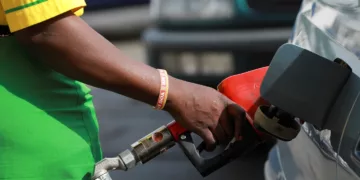A non-governmental organisation (NGO), the Women Environmental Programme (WEP) -in Nigeria, has distributed climate resistance seedlings to over 100 farmers in Adaka and Apir communities in Makurdi, the Benue State capital, to boost crop production.
This is even as the organisation’s monitoring and evaluation manager, Damaris Uja, warned beneficiaries against selling and consuming the seedlings, which she said are solely needed for planting because the seeds are mixed with climate-resistant chemicals that may harm health.
In an interview, Uja explained that the distribution of the improved seedlings in the two communities aims to assist vulnerable farmers, especially the poorest of the poor, widows, and persons with special needs, to enable them to have a sense of belonging.
According to her, “Before the distribution of the seedlings, WEP-Nigeria had trained these farmers on how to use locally sourced materials like neem seeds and local soap, among others, to produce organic farm inputs like fertiliser and to stop overdependence on the government for farm inputs, which hardly come on time.’’
She explained that this project tagged, “Action to Combat Climate Change Threats in Nigeria” is implemented by WEP-Nigeria and supported by Christian Aid-Nigeria to help farmers with new farming techniques and seedlings that can resist any kind of climate change in their communities to fight food insecurity that has become the order of the day in most Benue communities.
“With the distribution of these climate-resistant seedlings today, we are also appealing to you not to sell them; what we are expecting from you, the farmers, next season is the multiplication of these seedlings so that you can as well sell them to other members of the communities to ensure its spread, which will, in turn, improve your living standard amidst the economic hardship.”
Uja maintained that “ if these farmers can practice sustainable agriculture as we had taught them during the training on when they should be expecting rainfall, when to plant their crops, and crop rotation, among other things due to climate change, they will see the difference by getting a better harvest, and they will not be poor again.”











